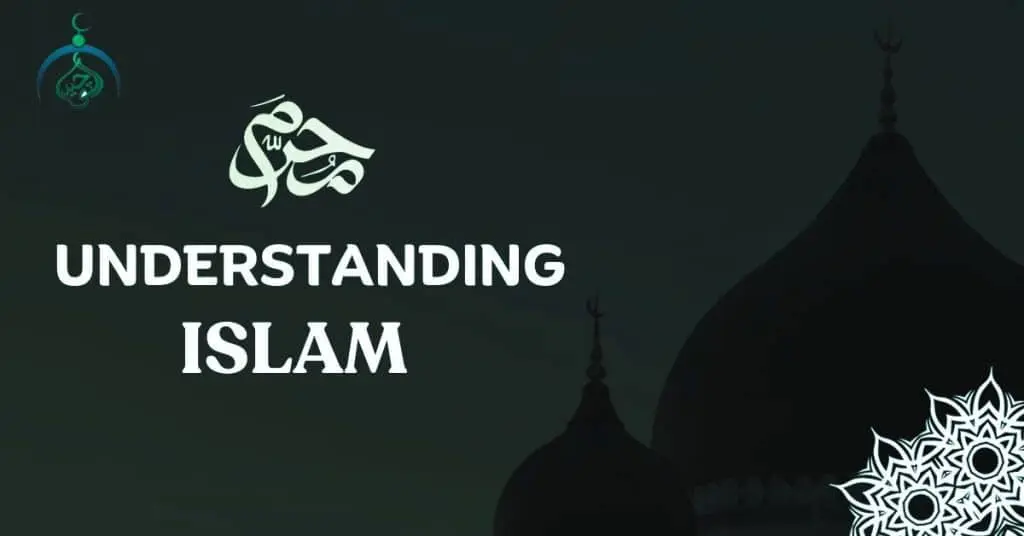
Understanding Islam
Understanding Islam: There are a lot of different religions and cultures in the world, but Islam is one of the main ones that affects the lives of over a billion people. To fully understand how deep and important Islam is, it’s important to look into its meaning, history, and main beliefs.
What is Islam?
In its most basic form, Islam is not just a faith but a whole way of life. The Arabic root word ‘S-L-M,’ which means peace, submission, and surrender, is where the word ‘Islam’ comes from. In this way, Islam can be seen as giving in to Allah’s will and finding peace by following His divine instructions.
1. Origins of Islam:
In the Arabian Peninsula in the 7th century, the Prophet Muhammad got messages from Allah through the Angel Gabriel. This is where Islam got its start. The Quran, the most important book in Islam, is based on these teachings. For Muslims, the Quran tells them what to believe, how to live, and what is right and wrong.
2. Pillars of Islam:
To understand Islam’s meaningfully, one must delve into its foundational principles, the Five Pillars of Islam.
i. Shahada (Declaration of Faith):
The first pillar is the Shahada, the testimony of faith. Muslims declare, “There is no god but Allah, and Muhammad is His messenger.” This simple yet profound statement encapsulates the essence of monotheism and the acceptance of Muhammad as the final prophet.
ii. Salah (Prayer):
Salah, or ritual prayer, is the second pillar and is performed five times a day facing the Kaaba in Mecca. This regular practice fosters a deep connection between the worshipper and Allah, emphasizing the importance of spiritual discipline.
iii. Zakat (Charity):
Zakat, the third pillar, stresses that Muslims have to give some of their money to people who are in need. This kind of charity supports fairness and kindness and shows how closely the Muslim community is linked.
iv. Sawm (Fasting during Ramadan):
Sawm, the fourth pillar, involves fasting from dawn to sunset during the holy month of Ramadan. This practice cultivates self-discipline, empathy for the less fortunate, and spiritual reflection.
v. Hajj (Pilgrimage to Mecca):
The fifth pillar is Hajj, the pilgrimage to Mecca that every able-bodied and financially capable Muslim must undertake at least once in their lifetime. This journey symbolizes unity, equality, and the culmination of spiritual devotion.
3. The Quran: A Source of Guidance:
The Quran, which is seen as the exact word of Allah as given to Prophet Muhammad, is at the heart of Islam. The Quran gives complete advice on many areas of life, including religion, morals, and the law. Many Muslims see it as a lighthouse that shows them how to live a good life.
4. Islam and Tolerance:
Despite what some people think, Islam stresses equality and living together. Different beliefs are seen as part of Allah’s plan, and the Quran encourages us to understand and respect those with different views.
5. Islam and Women:
Despite what some people think, Islam stresses equality and living together. Different beliefs are seen as part of Allah’s plan, and the Quran encourages us to understand and respect those with different views.
6. Islam and Social Justice:
Social justice is a cornerstone of Islamic teachings. The Quran advocates for the fair treatment of all individuals, irrespective of their social or economic status. The concept of Zakat, the third pillar, exemplifies Islam’s commitment to addressing societal imbalances.
7. Islam and Science:
Islam and science are not incompatible; rather, Islamic civilization has a rich history of scientific contributions. The Quran encourages the pursuit of knowledge and the exploration of the natural world, fostering an environment conducive to scientific inquiry.
8. Common Misconceptions about Islam:
Islam has a long past and many teachings, but many people have the wrong idea about it. One lie that is often spread is that Islam is violent. In reality, Islam forbids killing innocent people, and the acts of a few do not show what more than a billion Muslims believe.
9. Islamophobia: A Growing Concern:
The rise of Islamophobia is a problem that needs to be fixed around the world. Unfounded opinions and fears about Islam and Muslims not only keep stereotypes alive but also make it harder for people from different backgrounds to get along.
Conclusion:
In conclusion, understanding Islam goes beyond merely acknowledging its existence; it requires a nuanced exploration of its teachings, history, and impact on individuals and societies. Islam, at its core, is about submission to the will of Allah, peace, and the pursuit of justice and compassion. By dispelling misconceptions and fostering dialogue, we can build bridges of understanding that contribute to a more harmonious and inclusive world.